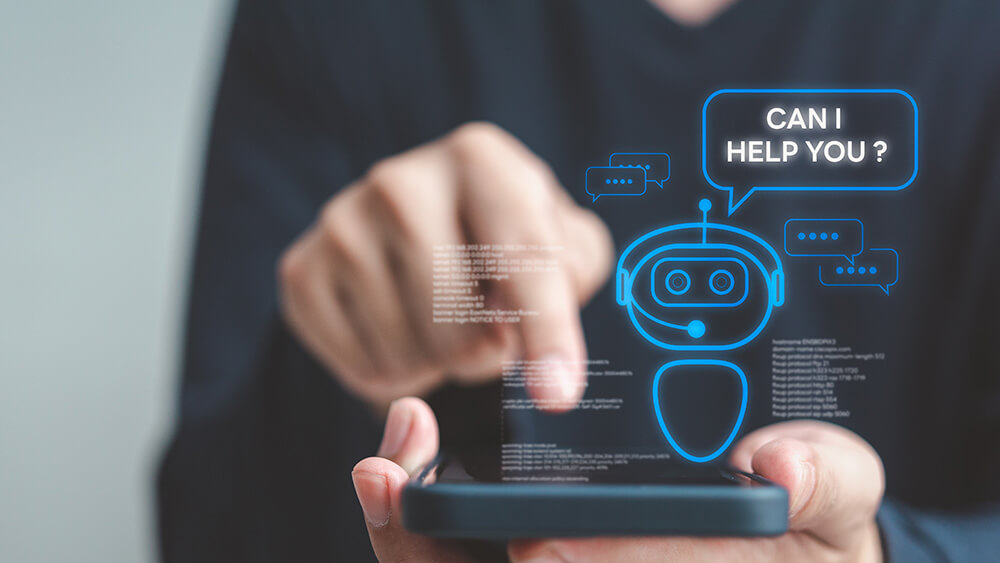
Marketing departments everyone are debating the merits of generative AI.

Kimberly Hardcastle-Geddes
While there’s no replacement for human intelligence and ironclad, enterprise-wide usage policies around it are essential, there can be no doubt that generative AI — a type of artificial intelligence system capable of generating text, images, or other media in response to prompts — is taking the business world by storm. The business events industry is no exception. Eight members of the mdg team share how they are embracing gen AI in their roles:
“In the design world, generative AI can help us test-drive concepts and decide where to invest our resources. These tools create visuals based on our ideas that are useful in determining whether an approach to a concept is viable. That frees us up to explore more, because we don’t have to spend time — and our budget — creating complicated composite Photoshop files just to find out that something doesn’t work.”
— Kacia Reilly, Group Director, Creative
“We’ve always known that localization is essential for hitting attendee-acquisition targets. With that in mind, we’ve been experimenting with generative AI primarily in a translation capacity. The results are certainly impressive, but it’s still essential to include that human review step in the process and to write a prompt that reflects the nuances of a specific language. I’m looking forward to seeing how these solutions evolve and tapping into their potential to streamline different international marketing tasks, like market research.”
— Anjia Nicolaidis, Group Director, International Strategy
“For me, it’s all about opening up new creative pathways. Generative AI is useful when brainstorming — it can suggest different words, headline structures, or industry terms, and that sends my mind in different directions. I see these tools as an asset instead of a threat. While they can generate coherent content, they lack the ability to understand an audience’s motivations and pain points in a human way, can’t ensure accuracy, aren’t familiar with the nuances of a specific brand voice, and don’t have the capacity to produce truly original work — but they can help professionals with those skills expand their own creativity.”
— Shereé Whiteley, Copy Director
“We’re starting to incorporate AI into the development of audience personas, which makes the whole process more efficient and improves the final product. We use generative tools to supplement our existing audience research, transcribe interview recordings, and even produce a unique and evocative image of the person we’re hoping to attract with our campaign. All of that helps us get a clearer picture of who we’re targeting, which is essential for achieving our — and our clients’ — goals.”
— Christine Johnson, Director of Content
“I think there’s a lot of opportunity for generative AI to support and expedite social-media marketing tactics. Right now, these tools are primarily brainstorming assistants that can help get my creative wheels turning. But because they can quickly aggregate a good amount of information and make it digestible, I can see them being useful with everything from reporting to research and contract management for influencer campaigns in the near future.”
— Sara Fellows, Director of Social Media
“I view generative AI as something that’s going to elevate me, and that’s exciting. Already, it’s been a useful problem-solver when it comes to debugging and an excellent educator — I’m learning functions and new coding languages faster because it explains things in such logical, simple formats. I look forward to potentially integrating AI into our production builds and stacks down the line, to continue increasing productivity.”
— Clinton Hall, Web Developer
“AI is a useful tool for uncovering strategic insights. By asking questions like, ‘What are 10 commonly held beliefs about [insert industry]?’ and ‘What are 10 trends that are changing the landscape of [insert industry]?’ we can gain a better understanding of that industry’s general landscape and its public perception. This enables us to either align with or challenge those findings in our marketing approach. While it’s important to note that AI may not have access to the most recent data, leveraging these tools helps us quickly grasp the dynamics of diverse industries and think creatively when developing campaign strategies.”
— Caitlin Fox, Vice President
“As a software developer, Large Language Model tools (commonly referred to as AI) have already saved me hours of time, much as they have for my colleagues in other disciplines: by shorten- ing the distance between intention and execution. Once I know what I want a piece of code to do, I’m only seconds away from having a live, working example. Sometimes, that means my work is already done. Other times, being able to see the most general or predictable path forward offers a valuable opportunity to take the road less traveled — which is arguably just as valuable as getting a right answer on the first try.”
— Mike Engard, Web Developer
Gen AI and CX
According to a recent McKinsey & Company report, “AI-powered marketing and sales reach new heights with generative AI,” the rise of gen AI has potential for impact in three areas: customer experience (CX), growth, and productivity.
Focusing on the customer experience, “hyper-personalized content and offerings can be based on individual customer behavior, persona, and purchase history” using gen AI, the report’s authors write.
When it comes to CX, Gen AI surpasses traditional AI-driven lead identification and targeting that uses web scraping and simple prioritization in these ways, the report says:
- “Gen AI’s advanced algorithms can build upon patterns in customer and market data to segment and target relevant audiences. Marketers are therefore able to efficiently analyze and identify high-quality leads, leading to more effective, tailored lead-activation campaigns.”
- Gen AI can optimize marketing strategies through alpha/beta testing of different elements, including page layouts, ad copy, and SEO strategies, using predictive analytics and data- driven recommendations. “These actions can continue through the customer journey, with gen AI automating lead-nurturing campaigns based on evolving customer patterns.”
The McKinsey report doesn’t gloss over issues that gen AI presents for organizations that “require thoughtful mitigation strategies and governance. The need for human oversight and accountability is clear and may require the creation of new roles and capabilities to fully capitalize on opportunities ahead.”
Kimberly Hardcastle-Geddes is chief marketing strategist at mdg, a Freeman Company, a full-service marketing and public relations firm specializing in B2B events.
